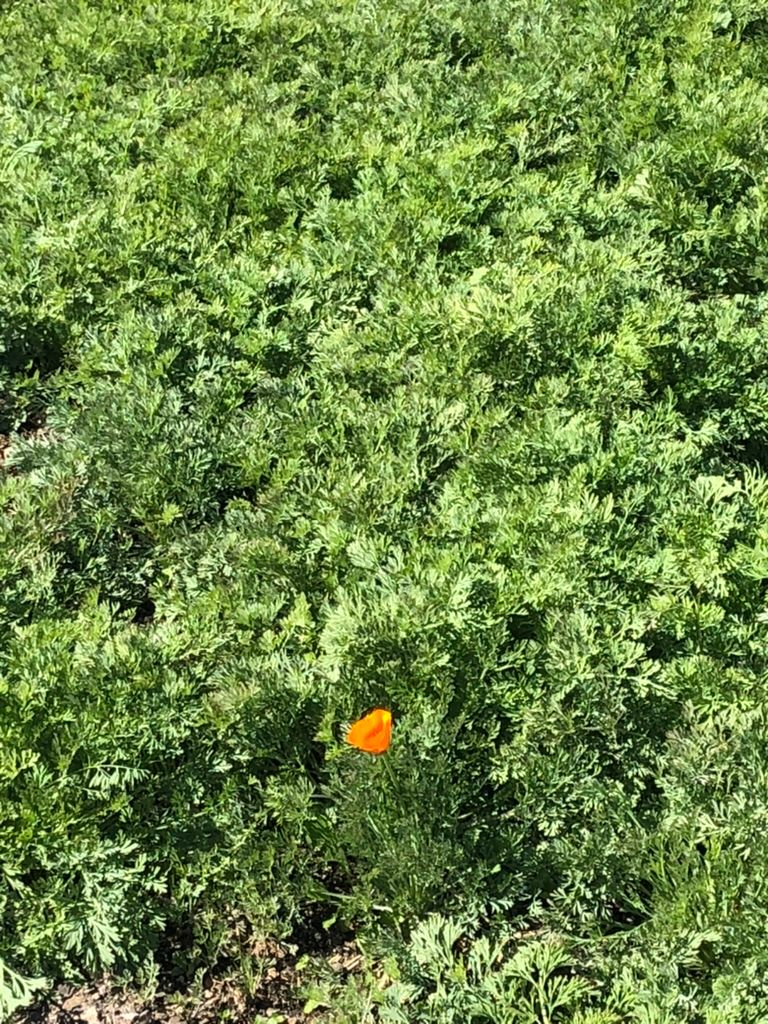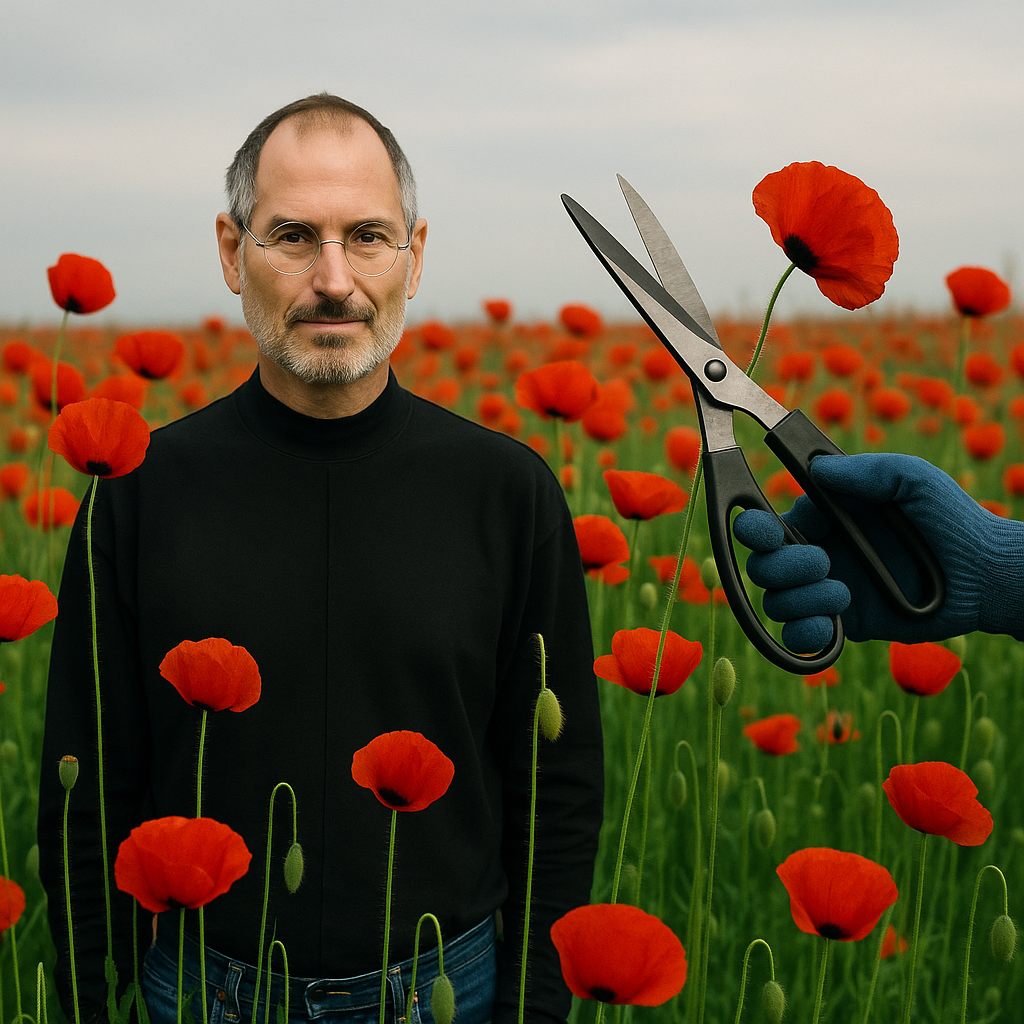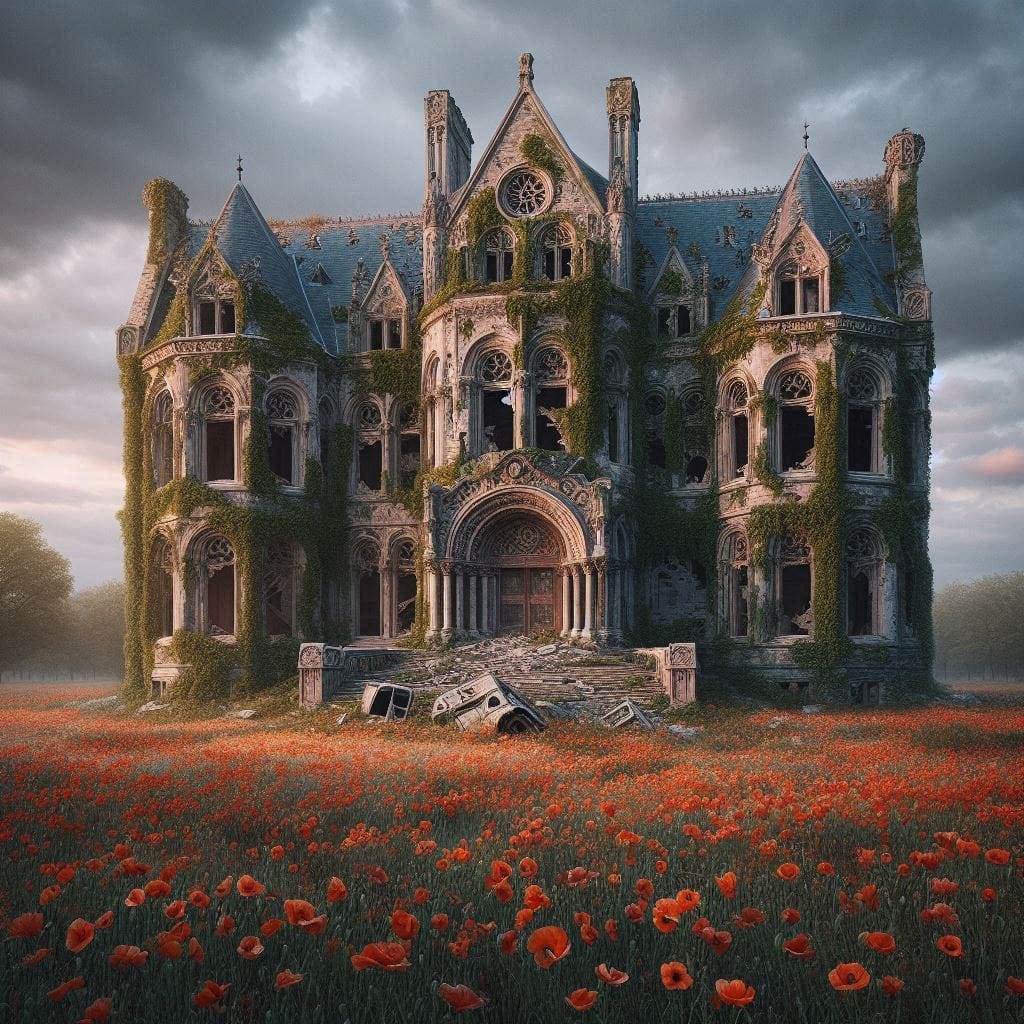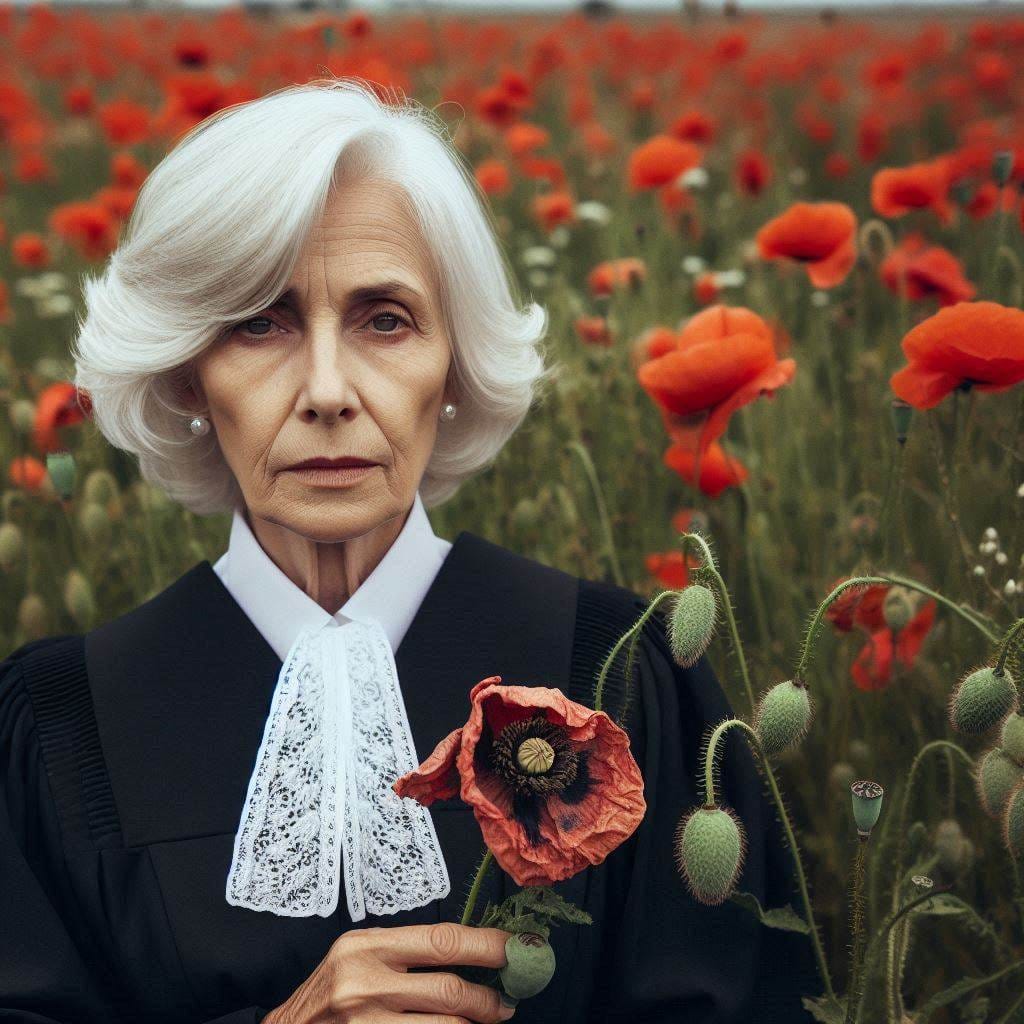Ebrahim Raisi as Cutter in the Tall Poppy Syndrome.

The good man brings good things out of the good stored up in his heart, and the evil man brings evil things out of the evil stored up in his heart. Luke 6:44-45.
Iranian President Ebrahim Raisi died when his helicopter crashed on May 19, 2024, in a mountainous border region of Iran near Azerbaijan. MAKTUB! The foreign minister, Hossein Amir-Abdollahian, and six other passengers and crew also perished. Two of the three airships in the convoy reached their homebound destination.
Raisi was in Azerbaijan to inaugurate, along with its President Ilham Aliyev, a third dam the two nations have built. Relations between the two nations have been strained over a gun attack on Azerbaijan’s embassy in Tehran in 2023, and Azerbaijan’s diplomatic ties with Israel.
Ebrahim Raisi was born in 1960 in the northeastern city of Mashhad, into a religious family - his father was a cleric. He began studying theology and Islamic jurisprudence from a young age, attending a seminary in Qom. Raisi, in his 20s, was one of the student activists who helped overthrow the Shah's regime during the 1979 Iranian Revolution.
After the revolution, he joined the judiciary system in 1981 and worked his way up the ladder to become a prosecutor. Raisi held roles as a prosecutor in several different cities and provinces across Iran in the 1980s and 1990s and became a conscientious apparatchik and protégé of Ayatollah Khamenei.
As a young prosecutor in Tehran, his most notorious position involved the 1988 mass executions of political prisoners, which he allegedly participated in through a "death commission" - a Death Panel of four Islamic judges. These inquisitions (death committees) were set up across Iran comprising religious judges, prosecutors, and intelligence ministry officials to decide the fate of thousands of detainees in arbitrary trials that lasted just a few minutes. Although the number of people killed across Iran was never confirmed, Amnesty International estimates the number to be around 5,000 - 30,000.
The executions established him as the "Butcher of Tehran" and subsequently subjected him to sanctions by the United States and condemnation by the United Nations and international human rights organizations.
In the 2000s, he steadily rose through the judicial ranks under conservative cleric rule, becoming First Deputy Chief Justice in 2004. His rise through the ranks of Iran's Shi'ite Muslim clergy continued until Khamenei appointed him to the high-profile job of judiciary chief in 2019. He was also elected deputy chairman of the Assembly of Experts, the 88-member clerical body responsible for electing the next Supreme Leader.
Raisi served as head of Iran's judiciary from 2019-2021. In this role, he oversaw the prosecution and execution of anti-government protesters and dissidents. He contentiously won the 2021 presidential election when the Guardian Council disqualified most candidates and a voter turnout of less than 50%.
Raisi and his government increased religious restrictions on society which led to the Women, Life, Freedom protests and the death in police custody of Mahsa Amini in 2022. The demonstrations were the most prodigious and prolonged in the Islamic Republic’s history. Quelling the protests resulted in more than 500 deaths while hundreds were injured, detained, or disappeared.
His regime was biased against the US and Western democracies and their interests. It supported, funded, and supplied combat drones to Russia for use in Ukraine and arms to various regional proxies in the Middle East. Its regional proxies have opposed the United States and Israel during the war in Gaza beginning on Oct. 7, 2023, and permitted Iran to abstain from confrontation with both countries. However, the Islamic Republic directly attacked Israel for the first time in history on April 2024, with drones and missiles in retaliation for Israel's strike on the Iranian consulate in Damascus.
Supreme Leadership. Since the Iranian Revolution of 1979, there have been two supreme leaders – Ayatollah Ruhollah Khomeini (1979-1989), and Ayatollah Ali Khamenei, who succeeded him. The 1979 Islamic Republic referendum fused Iran’s religion and politics and changed government institutions using Islam as a guide. The office of the supreme leader was officially established.
The supreme leader calls for a grand ayatollah who is also a source of emulation. When Khomeini approached the end of his life in 1989, the constitution was amended so that lower-ranking clerics like Khamenei could assume the position.
Grand Ayatollah Hussein-Ali Montazeri was a prominent theologian, revolutionary leader, and number two in power after Khomeini. Khomeini not only passed over (cut down) Montazeri but placed him under house arrest. Montazeri criticized the regime for its repression, especially the execution of thousands of political prisoners in 1988 by a committee of four prosecutors, one of whom was Raisi.
Khamenei, a longtime Khomeini loyalist and regime insider, was appointed successor and was elevated to grand ayatollah. He succeeded Khomeini in 1989. Raisi, Khamenei's protégé, was a hardliner and formerly led the country’s judiciary. Some analysts believed he was on a concise list to replace the 85-year-old leader.
Hamas (The Islamic Resistance Movement) was founded in 1987 during the First Palestinian Intifada against the Israeli occupation of the West Bank and Gaza Strip. It emerged as an offshoot of the Palestinian branch of the Muslim Brotherhood.
Hamas is a Palestinian Sunni-Islamic fundamentalist organization that has combined Palestinian nationalism with Islamic fundamentalist precepts. Its original charter called for the destruction of Israel and its replacement with an independent Islamic Palestinian state on the territories of pre-1948 British Mandate Palestine. Hamas has been criticized for not recognizing Israel's right to exist and for its use of violence and terror tactics like suicide bombings.
Hamas began an armed struggle against Israeli forces and settlers in the late 1980s through its military wing the Izz ad-Din al-Qassam Brigades. It has fought three major conflicts with Israel - in 2008-09, 2012, and 2014 - marked by rocket attacks into Israel and Israeli airstrikes on Gaza. Israel, the U.S., and others have labeled Hamas a terrorist organization due to its indiscriminate attacks on Israeli civilians.
Hamas boycotted Palestinian elections until 2006 when it won a majority in parliament, leading to a violent conflict with the secular Fatah party. Hamas took control of the Gaza Strip in 2007 after a brief Palestinian civil war with Fatah. It continues governing Gaza while Fatah controls the Palestinian Authority areas of the West Bank.
Hamas' unprovoked attack on Israel on Oct 7, 2023, initiated the present Israeli - Gaza War.
Hezbollah (Arabic for "Party of God) emerged in 1982 during the Lebanese Civil War and was founded by Iranian revolutionary forces and Lebanese Shia Muslim militants. It was created with the help of Iranian Revolutionary Guards and funding to fight against the Israeli occupation of Lebanon. Hezbollah's original goals were to expel Western influences and establish an Iranian-style Islamic state in Lebanon.
Hezbollah is a Shia Islamist political party and militant group based in Lebanon. It follows the Iranian revolutionary Khomeini doctrine of velayat-e faqih (guardianship of the Islamic jurist). Led by its Secretary-General Hassan Nasrallah, Hezbollah has a powerful political wing and military wing (Al-Muqawama Al-Islamiyya).
In the 1980s, Hezbollah waged an armed resistance campaign against Israeli and Western forces in Lebanon, including suicide bombings and hostage-takings. Its militants fought a guerrilla war that eventually helped force Israel to withdraw from southern Lebanon in 2000. Hezbollah's rocket attacks into northern Israel also triggered the 2006 Lebanon War with Israel.
After the civil war, Hezbollah entered Lebanese politics and now has seats in parliament and is represented by the government. It operates a vast social services network providing education, healthcare, and social welfare for Lebanon's Shia community. However, its militia remains armed and independent from the Lebanese army.
The U.S., Canada, Israel, and other nations have designated Hezbollah a terrorist organization over its activities and links to Iran. It has been accused of being involved in bombings and assassinations of Western and Israeli targets globally.
Hezbollah has been active during the Israeli - Gaza War. It launches military hardware into northern Israel daily which has displaced 60,000 Israelis.
Houthi (rebel movement in Yemen) emerged in the 1990s under the leadership of Hussein Badreddin al-Houthi, a member of the Zaidi Shia Muslim minority in northern Yemen. The group organized to raise awareness of the Zaidi community's rights and opposed the Yemeni government's ties to the West and Saudi Arabia. Their slogan is "God is Great, Death to America, Death to Israel, Curse the Jews, Victory to Islam."
In 2004, the group launched an uprising against the Yemeni government, accusing it of corruption and marginalization of Zaidis. This sparked a series of civil wars and conflicts between the Houthis and the government over the next decade. Despite al-Houthi's death in 2004, the rebels continued the insurgency and gained territory, backed by Iran.
In 2014-2015, the Houthis exploited instability and allied with forces loyal to former president Ali Abdullah Saleh. Together they seized Yemen's capital Sanaa and forced the internationally-recognized government of Abdrabbuh Mansur Hadi into exile.
A Saudi-led coalition intervened in 2015 to try to restore Hadi's government, sparking an ongoing brutal civil war. Iran has backed the Houthis with money, weapons, and training as part of their regional rivalry with Saudi Arabia. The conflict has caused one of the world's worst humanitarian crises, with thousands killed and millions displaced.
During the Israeli - Gaza War they have mainly hassled the world's ships traversing the Red Sea.
Governmental leaders, their departments, and proxies are large cutters in TPS although rarely mentioned elsewhere. Cutting down the opposition seems as important as governing. I noticed their role in ancient history in most countries, which continues unabated to the present day. I have an entire chapter on our government's involvement in TPS in my book The Tall Poppy Syndrome: The Joy of Cutting Others Down. Consequences are often more consequential in non-democratic governments.
Tall Poppy Syndrome Newsletter
Join the newsletter to receive the latest updates in your inbox.



